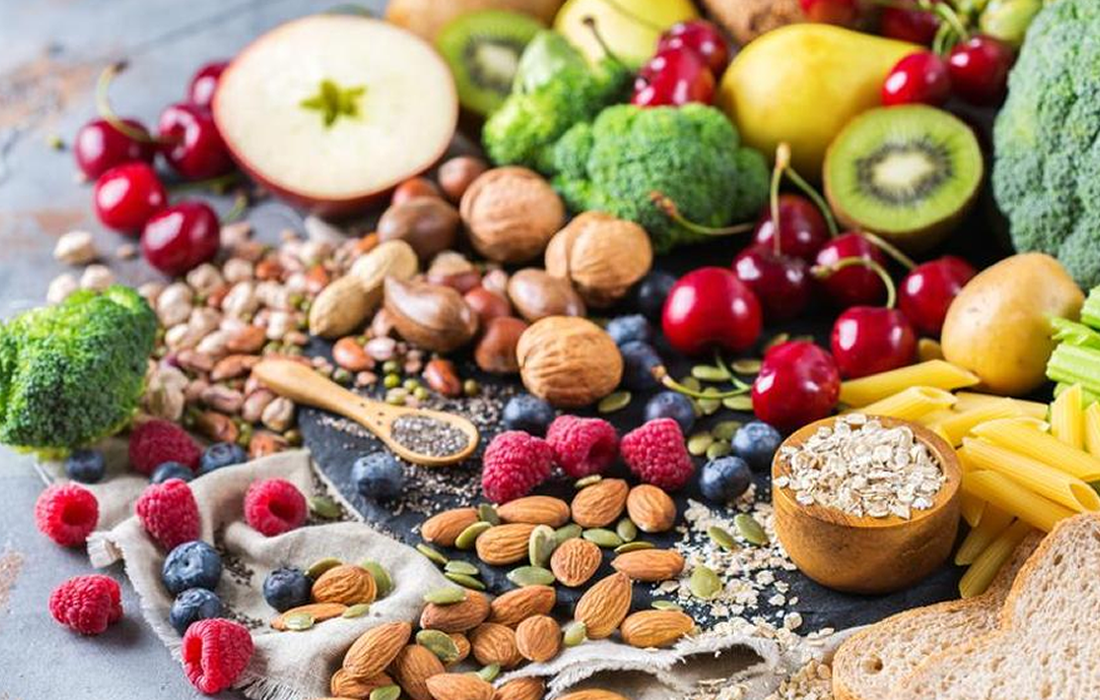Nutrition and Supplements
Can Some Foods Boost Metabolism?
Within the last 30 years, the obesity rate for adult Americans has more than doubled from 15% to 32% and currently, it is estimated that two-thirds of Americans are either overweight or obese, a 42% increase since 1980.
A primary cause of this obesity epidemic is thought to be gross caloric intake, which has risen by an estimated 300 calories per day in the past 25 years in the USA. This has a strong association with increased consumption of pre-prepared processed foods (PF) and insufficient consumption of whole foods (WF) such as fruits, vegetables, and whole grains.
Metabolism is the sum of the reactions in our cells that provide the necessary energy for functions such as movement, growth, and development. Many factors can affect metabolism including age, diet, biological sex, physical activity and health conditions.
Basal metabolic rate is the energy required for the maintenance of critical body functions, such as breathing, while at rest. This is the largest contributor to the calories burned on a daily basis, also known as total energy expenditure.
The digestion and processing of food, including carbs, proteins, and fats, also require energy. This is known as the thermic effect of food (TEF). Some foods take more energy to break down than others, and this can slightly increase metabolism. For example, fat takes less energy to digest than proteins and carbs. Proteins have the highest TEF out of the three macronutrients.
Some foods take more energy to digest than others and some foods may slightly increase the basal metabolic rate, but not much. It is the total dietary intake that matters most. For example, the TEF, the energy required to digest food, differs depending on the macronutrient content of the meal. Here is the energy required to digest macronutrients:
- Proteins: 10%-30% of the energy content of the ingested protein.
- Carbs: 5%-10% of the ingested carbohydrates.
- Fat: 0%-3% of the ingested fat.
The body uses the most energy to break down and store proteins, which is why it has the highest TEF. This accounts for about 10% of the total daily energy expenditure. For this reason, consuming a high protein diet may help us burn more calories overall.
Studies have shown that highly processed meals take less energy to digest than whole foods. This is likely due to lower amounts of fiber and protein in highly refined foods.
Research has also shown that high protein diets can increase the resting metabolic rate (RMR), the calories burned while at rest. One study from 2015 found that people with a high-calorie diet, consuming a high amount of protein significantly increased 24-hour resting energy expenditure, compared with a low amount of protein.
Another study from 2021 determined that a high protein diet consisting of 40% protein, produced higher total energy expenditure and increased fat burning, compared with a control diet that contained 15% protein.
Do specific foods increase metabolism?
Compounds in chili peppers, green tea, and coffee may slightly boost metabolism.
Caffeine can increase energy expenditure, so drinking caffeinated beverages such as coffee and green tea may boost metabolism by a small amount. Some studies show that consuming green tea catechin extract products may increase daily calorie expenditure by as much as 260 calories when paired with resistance exercise. It is important to note that most research in this area involves high doses of green tea extract supplements, and the results may not apply to people who simply drink green tea.
Capsaicin in chili peppers can increase metabolic rate when taken in concentrated supplements. But the amount of this compound in a typical dish containing chili peppers is unlikely to significantly affect metabolism.
To promote and maintain a healthy body weight it is essential to focus on the overall quality and macronutrient content of the diet, rather than incorporating or eliminating specific foods.
As previously mentioned, research shows that diets rich in protein and whole foods likely increase energy expenditure, compared with diets low in protein and high ultra-processed foods.
Getting enough physical activity and maintaining healthy muscle mass can also help improve the overall energy expenditure. Resistance training may be especially effective. A 2015 study showed that resistance training for 9 months could boost RMR by as much as 5% in healthy adults. And a 2020 review found that resistance exercise increased RMR, resulting in an average calorie increase of about 96 calories per day, compared with a control group.
Source:
Jullian Kubala, MS, RD. (2021, Jul 20). Foods that boost metabolism: What does the science say? Medical News Today. Retrieved from:
https://www.medicalnewstoday.com/articles/foods-that-boost-metabolism-what-does-the-science-say
Barr SB, Wright JC. Postprandial energy expenditure in whole-food and processed-food meals: implications for daily energy expenditure. Food Nutr Res. 2010 Jul 2;54. doi: 10.3402/fnr.v54i0.5144. PMID: 20613890; PMCID: PMC2897733.
Image from:

